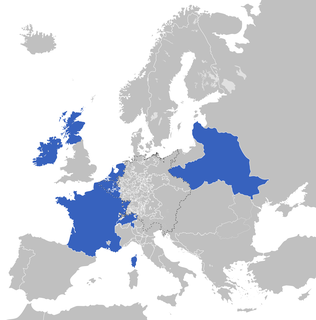 W
WIn political science, a revolution is a fundamental and relatively sudden change in political power and political organization which occurs when the population revolts against the government, typically due to perceived oppression or political incompetence. In book V of the Politics, the Ancient Greek philosopher Aristotle described two types of political revolution:Complete change from one constitution to another Modification of an existing constitution.
 W
WThe term revolution is used to denote trends which have resulted in great social changes outside the political sphere, such as changes in mores, culture, philosophy or technology. Many have been global, while others have been limited to single countries. Such revolutions include:The Agricultural Revolutions, which include: The Neolithic Revolution, which formed the basis for human civilization to develop. It is commonly referred to as the 'First Agricultural Revolution'. The Green Revolution (1945–): The use of industrial fertilizers and new crops greatly increased the world's agricultural output. It is commonly referred to as the 'Second Agricultural Revolution'. The British Agricultural Revolution, which spurred urbanisation and consequently helped launch the Industrial Revolution. The Scottish Agricultural Revolution, which led to the Lowland Clearances. The Commercial Revolution: A period of European economic expansion, colonialism, and mercantilism which lasted from approximately the 16th century until the early 18th century. The Counterculture of the 1960s was a social revolution that originated in the United States and United Kingdom, and eventually spread to other western nations. The themes of this movement included the anti-war movement, civil rights for African-Americans, rebellion against conservative norms, drug use, and the sexual revolution . The Sexual revolution: A change in sexual morality and sexual behavior throughout the Western world, mainly during the 1960s and 1970s. The Chinese Cultural Revolution: A struggle for power within the Communist Party of China, which grew to include large sections of Chinese society and eventually brought the People's Republic of China to the brink of civil war, and which lasted from 1966 to 1976. The Iranian Cultural Revolution: A struggle for power within Iran after the return to Tehran February 1, 1979 of Ayatolla Khomeini after a 15-year exile, who was declared ruler for life in December of the same year, and which lasted from 1980 to 1983. The Digital Revolution: The sweeping changes brought about by computing and communication technology, starting from circa 1950 with the creation of the first general-purpose electronic computers. The Industrial Revolution: The major shift of technological, socioeconomic and cultural conditions in the late 18th century and early 19th century that began in Britain and spread throughout the world. The Second Industrial Revolution (1871–1914). The Price revolution: A series of economic events from the second half of the 15th century to the first half of the 17th, the price revolution refers most specifically to the high rate of inflation that characterized the period across Western Europe. The Quiet Revolution: A period of rapid change in Quebec, Canada, in the 1960s. This leads to the separatist movement for Quebec sovereignty and two referendums. The Scientific revolution: A fundamental transformation in scientific ideas around the 16th century. The Upper Paleolithic Revolution: The emergence of "high culture", new technologies and regionally distinct cultures.
 W
WThis is a list of revolutions, rebellions, insurrections, and uprisings.
 W
WThe Age of Revolution is a period from the late 18th to the mid-19th centuries in which a number of significant revolutionary movements occurred in most of Europe and the Americas. The period is noted for the change from absolutist monarchies to representative governments with a written constitution, and the creation of nation states.
 W
WThe Atlantic Revolutions were a revolutionary wave in the late eighteenth and early nineteenth centuries. It was associated with the Atlantic World during the era from the 1760s to the 1870s.
 W
WWorldwide media use the term colour revolution to describe various communism related movements developed in several countries of the former Soviet Union, in the People's Republic of China and the Balkans during the early 21st century. The term has also been applied to several revolutions elsewhere, including in the Middle East and the Asia-Pacific region, dating from the 1980s to the 2010s. Some observers have called the events a revolutionary wave, the origins of which can be traced back to the 1986 People Power Revolution in the Philippines.
 W
WThe overthrow of the Roman monarchy, a political revolution in ancient Rome, took place around 509 BC and resulted in the expulsion of the last king of Rome, Lucius Tarquinius Superbus, and the establishment of the Roman Republic.